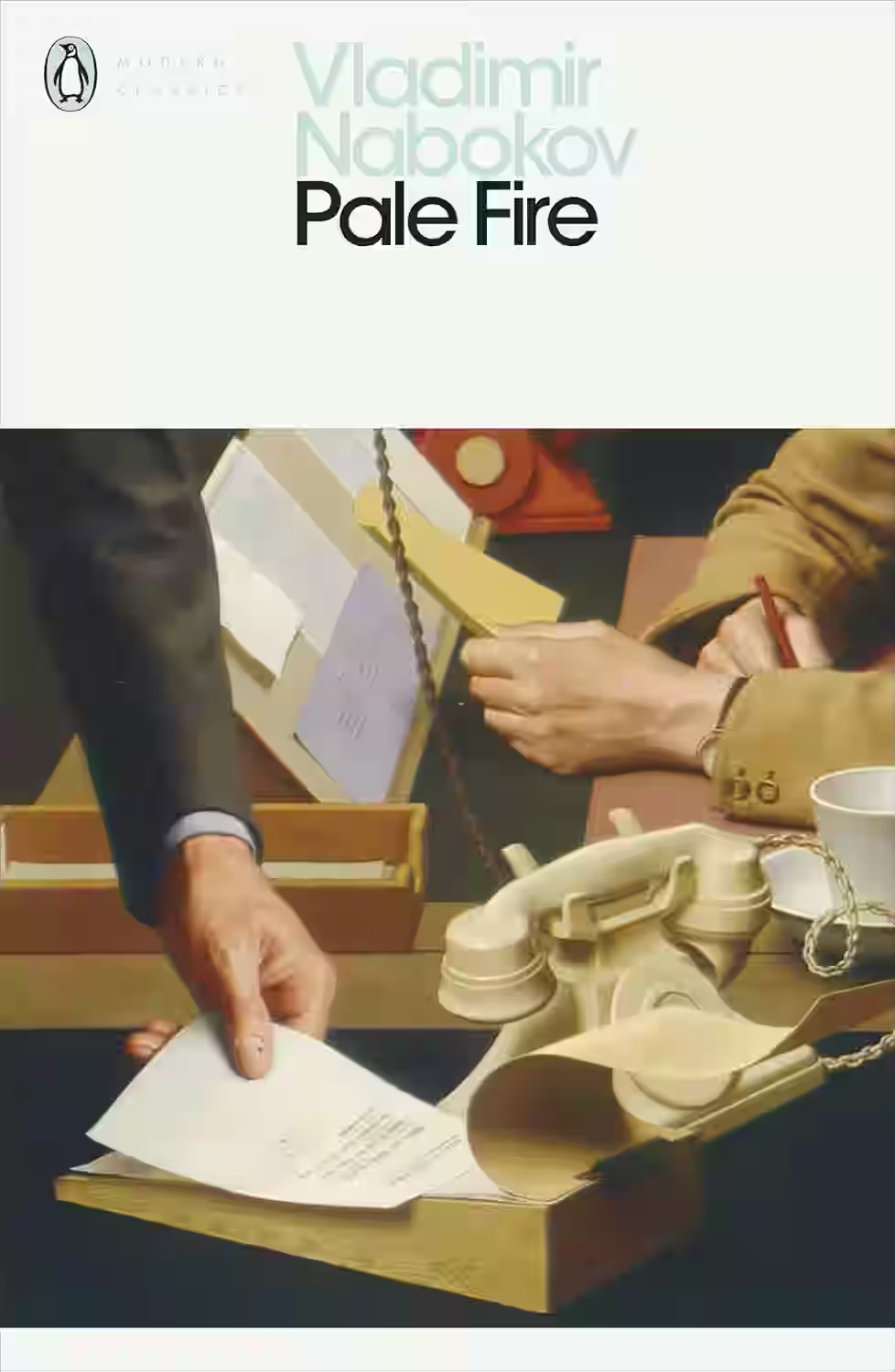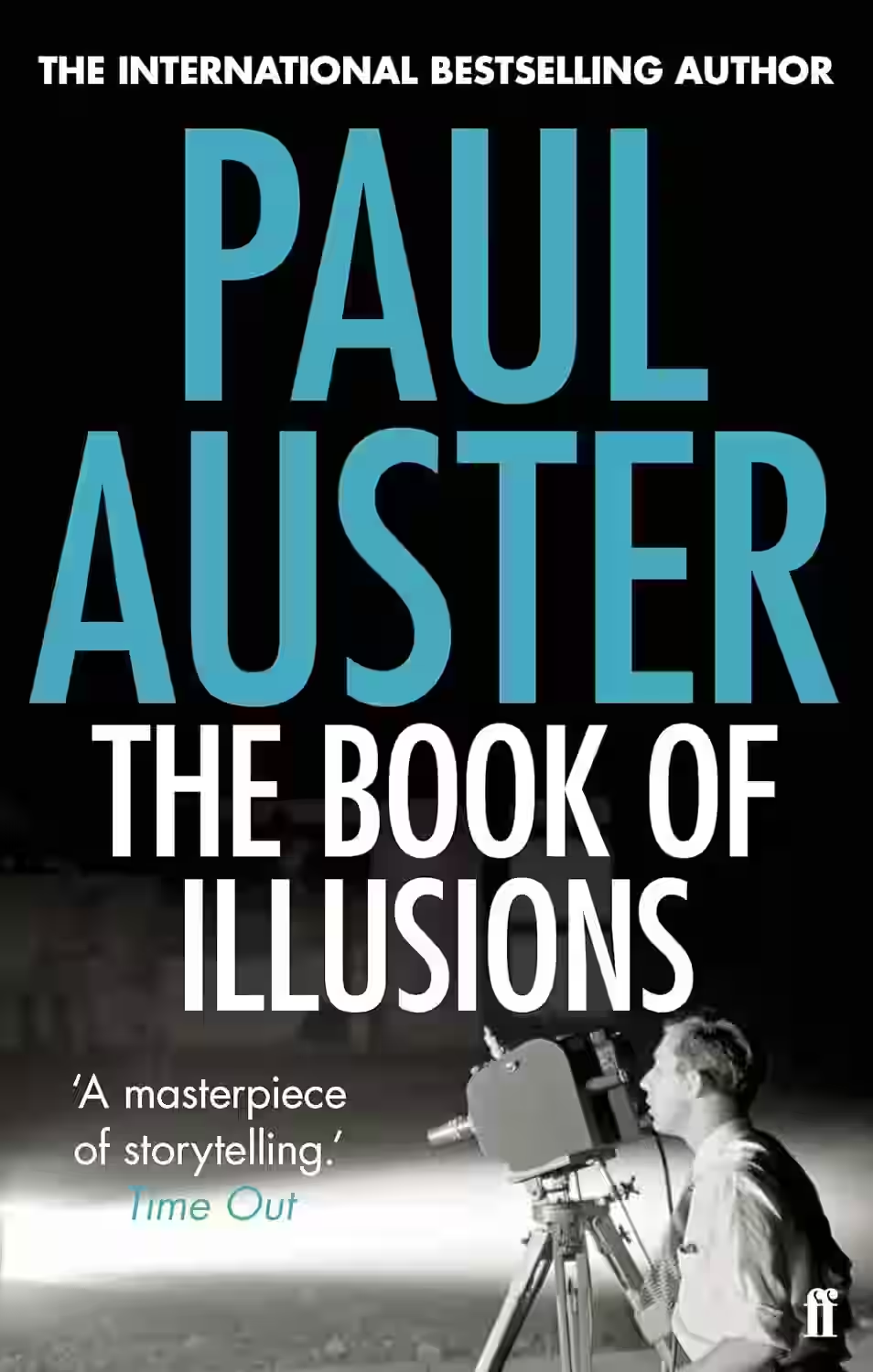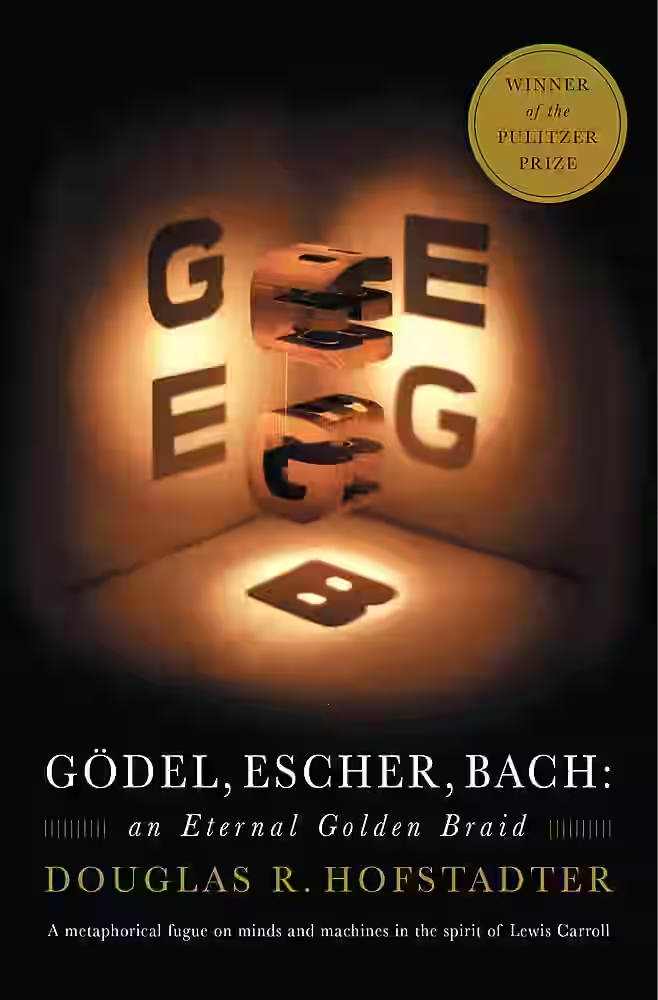Metafiction
Metafiction is a genre where the narrative self-consciously addresses its own fictionality, blurring the line between reality and storytelling.

Pale Fire
Vladimir Nabokov's 'Pale Fire' is a brilliantly conceived novel that blurs the lines between poetry and prose, fiction and criticism. At its center is a 999-line poem by the fictional poet John Shade, accompanied by an extensive commentary by his self-appointed editor, Charles Kinbote. The novel masterfully unfolds through Kinbote's verbose footnotes, which reveal his obsession with both the poem and Shade himself. Themes of artifice, madness, and the nature of textual interpretation are explored as Kinbote's commentary becomes increasingly detached from the poem, presenting a narrative of his own deluded reality. 'Pale Fire' is a metafictional masterpiece illustrating Nabokov's genius for linguistic play and deceptive storytelling, challenging readers to discern layers of meaning beneath its complex surface.

The Book of Illusions
by Paul Auster
Paul Auster's 'The Book of Illusions' delves deep into themes of grief, identity, and redemption through a layered narrative that intertwines the lives of its protagonist, David Zimmer, and the enigmatic silent film star Hector Mann. Following a family tragedy, Zimmer immerses himself in Mann's films, writing a book that ultimately pulls him into a complex web of mystery and revelation. Auster masterfully crafts a thought-provoking exploration of how one's life can be dramatically altered by chance encounters and hidden truths, blending elements of noir and existential reflection. The novel captivates with its intricate plot and introspective prose, leaving readers to ponder the illusions that shape reality.

Extremely Loud and Incredibly Close
Jonathan Safran Foer's "Extremely Loud and Incredibly Close" is a poignant and innovative exploration of grief, loss, and resilience in the aftermath of tragedy. The story follows nine-year-old Oskar Schell as he navigates the complexities of his father's death in the 9/11 attacks. Through Oskar's journey to unlock the mystery behind a key he discovers in his father's belongings, readers are taken on a heart-wrenching yet uplifting exploration of human connection, love, and the search for meaning amidst chaos. Foer's unique use of visual storytelling elements and fragmented narrative style adds a layer of depth to the narrative, making it a truly unforgettable read.

Godel, Escher, Bach: An Eternal Golden Braid
In 'Godel, Escher, Bach: An Eternal Golden Braid', Douglas Hofstadter weaves together the enigmatic works of mathematician Kurt Godel, artist M.C. Escher, and composer Johann Sebastian Bach to explore the interconnectedness of logic, art, and music. Through a series of engaging dialogues, thought experiments, and puzzles, Hofstadter delves into complex concepts such as recursion, self-reference, and consciousness, challenging readers to ponder the nature of intelligence and creativity. This Pulitzer Prize-winning book is a masterful blend of philosophy, mathematics, and art that invites readers on a mind-bending journey through the mysteries of human cognition and the limits of formal systems.

The Raw Shark Texts
by Steven Hall
In Steven Hall's 'The Raw Shark Texts,' we follow the journey of Eric Sanderson as he grapples with memory loss and uncovers a mysterious world where a conceptual shark hunts him through the dangerous waters of the Un-Space. The novel seamlessly weaves elements of psychological thriller, mystery, and metaphysical exploration, captivating readers with its unique narrative style and mind-bending twists. As Eric navigates through fragmented memories and cryptic messages, the story delves deep into themes of grief, identity, and the power of storytelling. 'The Raw Shark Texts' is a compelling and inventive literary work that challenges perceptions of reality and memory.